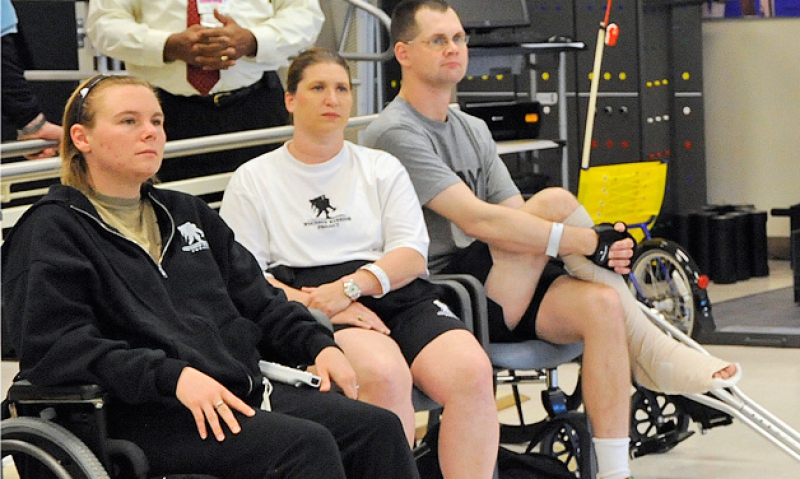
Legion submits testimony as House subcommittee explores ways to improve disability claims process, based on 2007 recommendations.
As the Department of Veterans Affairs looks to revise its current disability ratings schedule, The American Legion is asking the department to stay true to its primary mission – caring for the country’s veterans – and provide necessary training so that those processing claims don’t put quotas ahead of quality.
The House Subcommittee on Disability Assistance and Memorial Affairs met Jan. 24 for the first in a series of hearings focusing on the implementation of the 2007 Dole-Shalala Commission’s recommendations. The commission called for a complete restructuring of the disability and compensation systems, and for VA to assume all responsibility for establishing disability ratings and for disability compensation and benefits programs. The commission called for VA to “move swiftly to update (and thereafter keep current) its disability rating schedule to reflect current injuries and modern concepts of the impact of disability on quality of life.”
But this cannot be accomplished, American Legion National Commander Fang A. Wong said, without a more efficiently designed rating schedule and proper training of VA employees – half of whom have less than three years of experience in claims adjudication.
“Simply rewriting the regulations currently in place doesn’t replace the need to properly train those who must interpret the regulations on a daily basis to ensure veterans receive their fair due,” Wong said. “Training those employees cannot be sacrificed while VA attempts to increase its output of claims decisions. There must be a balance, because without a properly trained staff, the benefit of rewriting the ratings schedule is negligible.”
Verna Jones, director of the Legion’s Veterans Affairs & Rehabilitation Division, submitted written testimony to the hearing. She wrote that changes to the disability ratings schedule must be made with care.
“Those with experience in the VA disability rating system will agree the current regulations are difficult for veterans and employees of VA to utilize effectively,” the testimony stated. “However, care must be taken in revision to ensure regulations are not simply changed for administrative expediency that comes at the expense of veterans. We cannot afford to simplify, for bureaucratic convenience, if those simplifications result in an overall negative impact on disabled veterans.”
Consistency in claims adjudication also should be stressed, the testimony stated. “Just as veterans with identical knee injuries should receive the same rating whether they are evaluated in Newark, N.J., or Oakland, Calif., active-duty servicemembers with identical injuries should be evaluated equally regardless of whether they serve in the Air Force, Coast Guard, Navy, Army or Marine Corps,” Jones wrote. “Furthermore, it is only common sense that ratings on both sides of the green line dividing active duty and veteran status should be consistent. Sadly, this is not the current state of affairs.”
Wong said any reform of the ratings schedule must be made with VA’s patients in mind. “The disability system is in place to serve those who have made incredible sacrifices while putting their lives on the line for this country,” he said. “Every step of this process must be taken with that in mind.”
- Veterans Benefits

